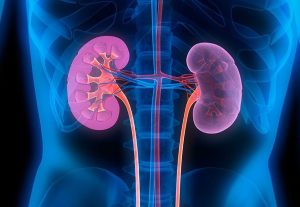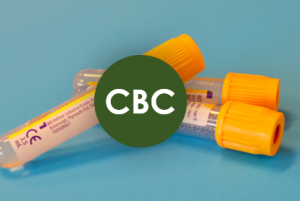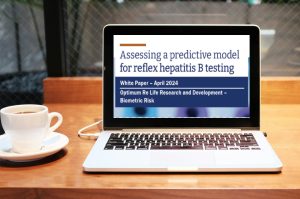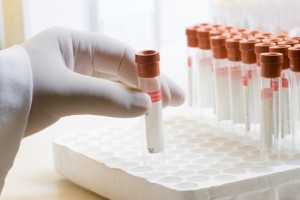The world has changed. How people are managing their health is changing, including the life insurance applicant population. The long-term impact of the COVID-19 crisis on the general health of millions of Americans is yet to be determined. However, we are monitoring closely the trends in our life insurance laboratory population for common health indicators like diabetes (A1c), heart disease (BMI, cholesterol), and liver issues (ALT, AST, GGT). Initially, we are seeing slight increases in our overall laboratory results database for these tests.
Society and lifestyle
changes associated with the COVID-19 pandemic also appear to be having a
negative impact which can be reflected in laboratory and biometric results. New
risk factors such as “quarantine 15” weight gain, regular Zoom happy hours
(alcohol consumption), more sedentary lifestyles, and delayed medical care in
the insurance-buying population all contribute to the aggregate testing trends we
show.
More weight and more alcohol
In a WebMD poll of more than 1,000 US readers, nearly half of the women and almost one-quarter of the men said they’d gained weight “due to COVID restrictions.” The poll conducted in May 2020 found that 26% said they gained 7-9 pounds and 21% attributed it to “extra alcohol consumption.”
According to a Morning Consult poll of 2,200 U.S. adults conducted in early April, 16% of all adults said their drinking had increased during the pandemic, with higher rates among younger adults. Nielsen reports alcohol sales in stores were up 54% in late March compared to that time last year, while online alcohol sales were up nearly 500% in late April. We know alcohol abuse and misuse has an impact on mortality and a life insurer’s bottom line.
Our physician colleagues at Quest Diagnostics are also monitoring health outcome changes and recently published 2 reports that outline other health challenges related to COVID-19
Reduced diabetes monitoring
Recent research discovered a trend of reduced hemoglobin A1c diabetes monitoring. The report shows interruptions in A1c testing because of daily, unusual social or societal circumstances, such as the stay-at-home orders associated with the COVID-19 pandemic, which may impair diabetes management.
Decline in cancer diagnoses due to COVID-19
While residents have taken to social distancing, cancer does not pause. JAMA Network Open published a research letter submitted by medical experts from Quest Diagnostics that found a 46% decline in newly diagnosed cases of 6 cancers during the pandemic, based on analysis of de-identified laboratory test results. The findings are significant for revealing patterns of delayed cancer diagnosis due to COVID-19, which “will likely lead to presentation of cancer at more advanced stages and poorer clinical outcomes.”
On a more hopeful and personal note, I’m seeing the potential for some positive health changes to occur during the pandemic due to the increased physical activity in my neighborhood. This may be a result of a recent rise in dog adoptions. I love seeing all the “new” puppies while walking my “older” Corgis to help keep us all in shape. Nonetheless, the one constant in monitoring these changes, positive and negative, is the importance of laboratory testing to accurately evaluate everyone’s health—including your life insurance applicants.




















The world has changed. How people are managing their health is changing, including the life insurance applicant population. The long-term impact of the COVID-19 crisis on the general health of millions of Americans is yet to be determined. However, we are monitoring closely the trends in our life insurance laboratory population for common health indicators like diabetes (A1c), heart disease (BMI, cholesterol), and liver issues (ALT, AST, GGT). Initially, we are seeing slight increases in our overall laboratory results database for these tests.
Society and lifestyle changes associated with the COVID-19 pandemic also appear to be having a negative impact which can be reflected in laboratory and biometric results. New risk factors such as “quarantine 15” weight gain, regular Zoom happy hours (alcohol consumption), more sedentary lifestyles, and delayed medical care in the insurance-buying population all contribute to the aggregate testing trends we show.
More weight and more alcohol
In a WebMD poll of more than 1,000 US readers, nearly half of the women and almost one-quarter of the men said they’d gained weight “due to COVID restrictions.” The poll conducted in May 2020 found that 26% said they gained 7-9 pounds and 21% attributed it to “extra alcohol consumption.”
According to a Morning Consult poll of 2,200 U.S. adults conducted in early April, 16% of all adults said their drinking had increased during the pandemic, with higher rates among younger adults. Nielsen reports alcohol sales in stores were up 54% in late March compared to that time last year, while online alcohol sales were up nearly 500% in late April. We know alcohol abuse and misuse has an impact on mortality and a life insurer’s bottom line.
Our physician colleagues at Quest Diagnostics are also monitoring health outcome changes and recently published 2 reports that outline other health challenges related to COVID-19
Reduced diabetes monitoring
Recent research discovered a trend of reduced hemoglobin A1c diabetes monitoring. The report shows interruptions in A1c testing because of daily, unusual social or societal circumstances, such as the stay-at-home orders associated with the COVID-19 pandemic, which may impair diabetes management.
Decline in cancer diagnoses due to COVID-19
While residents have taken to social distancing, cancer does not pause. JAMA Network Open published a research letter submitted by medical experts from Quest Diagnostics that found a 46% decline in newly diagnosed cases of 6 cancers during the pandemic, based on analysis of de-identified laboratory test results. The findings are significant for revealing patterns of delayed cancer diagnosis due to COVID-19, which “will likely lead to presentation of cancer at more advanced stages and poorer clinical outcomes.”
On a more hopeful and personal note, I’m seeing the potential for some positive health changes to occur during the pandemic due to the increased physical activity in my neighborhood. This may be a result of a recent rise in dog adoptions. I love seeing all the “new” puppies while walking my “older” Corgis to help keep us all in shape. Nonetheless, the one constant in monitoring these changes, positive and negative, is the importance of laboratory testing to accurately evaluate everyone’s health—including your life insurance applicants.